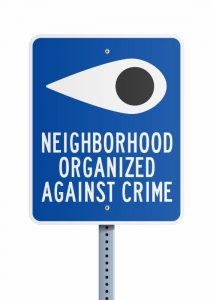 Security will always be a primary concern for community associations, especially during the holiday season. Statistics show that criminal activity peaks between November and December, and all too often, these events are tied to the increase in shopping and traveling. If a crime occurs in your community, it invariably revives the question: does the association have an obligation to provide security?
Security will always be a primary concern for community associations, especially during the holiday season. Statistics show that criminal activity peaks between November and December, and all too often, these events are tied to the increase in shopping and traveling. If a crime occurs in your community, it invariably revives the question: does the association have an obligation to provide security?
The answer in most cases is no. The governing documents for many community associations contain a provision in the declaration that states the association is not responsible, nor shall it be liable for, ensuring the safety and security of owners, their guests, invitees, or their personal property. This type of exculpatory clause has been upheld since the 2002 Georgia Court of Appeals decision in Bradford Square Condominium Association, Inc. v. Miller, 573 S.E.2d 405 (Ga. Ct. App. 2002). In Bradford Square, a husband and wife were attacked in the common element parking lot of their condominium. The husband was killed in the attack, and as a result, the wife sued the association for wrongful death, arguing that it had a duty to provide security in the form of security gates, enhanced lighting and a security guard. The court found that the exculpatory clause in the condominium’s declaration obviated any duty on the part of the association to provide security on the common property, or to protect its residents from third-party criminal acts.
In the wake of Bradford Square, many associations across metro Atlanta amended their governing documents to adopt the same or similar exculpatory language, and it is now a common provision in governing documents for almost all communities developed after 2002. Any association that has this clause in its governing documents will generally not have a legal obligation to provide security to its residents.
It is important to note, however, that having such an exculpatory clause does not automatically remove an association from all liability for third-party criminal acts. For example, if an association takes affirmative steps to provide security—to the extent that members reasonably believe it is being provided—there could be liability on the part of the association if a crime occurs and damages result. This does not mean an association should never take steps to deter criminal activity, but if it does, the key in doing so is to remind all residents that the steps taken should not be considered a guarantee that criminal activity will never occur. Rather, it should be clearly communicated that residents remain responsible for their own personal safety in accordance with the terms of the exculpatory clause in the association’s governing documents.
If your association does not have such an exculpatory clause in its declaration, or if there is a question as to whether your association is taking steps to provide security that could result in potential liability, it is important to consult with your attorney to ensure that the interests of the association and its residents are being protected.
